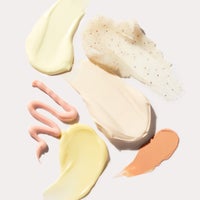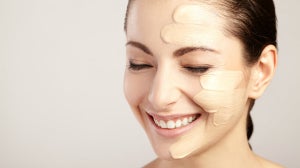
Why does my skin hurt? Why is my skin sensitive to touch? Identifying how and why we experience skin pain can be quite difficult, and there are a number of temporary and long-lasting conditions that can contribute to this. When experiencing pain, it is important to seek professional advice from a doctor. However, there are ways in which you can alleviate symptoms.
Skin pain, or skin hurt, can be the result of any number of conditions. Some cases of 'skin hurt' or pain may have been caused by temporary conditions like abrasions, abscesses, burns, or sunburns. It can also be the result of injury to the nerves or chronic conditions like fibromyalgia, neuropathy, and neuralgia. The most important thing you can do to help yourself is to seek professional advice from a doctor to help identify the problem.
A medical professional will be able to assist you in finding the right course of treatment for why your skin hurts. In the meantime, you can also take the initiative to alleviate your symptoms by using skincare products like healing serums, body balms, and comforting creams. These products can bring you relief from skin problems and irritations, keeping your skin in optimal health.
Read on to learn more about the many different types of skin pain and how to treat them.
What are the most common causes of skin sensitivity and pain?
Skin pain, sensitivity and irritation can be caused by several different factors, including:
Allodynia
Allodynia is when the skin becomes hypersensitive to the touch. This extreme sensitivity can be a result of migraines, nerve damage and diabetes.
- Symptoms: This hypersensitivity may cause pain from something that does not normally provoke pain, for example, touching your bed sheets. Other common symptoms include burning and stinging sensations.
- How To Treat: Nonsteroidal anti-inflammatory drugs (NSAIDs) like ibuprofen can support the treatment of allodynia. You can also try topical treatments such as lidocaine or even Cognitive Behavioral Therapy (CBT).
- Products That Could Help to Relieve Pain: The Perricone MD Calming & Soothing CBD Collection harnesses the recognized nourishing properties of CBD to help moisturize and provide a sense of comfort to the skin.
Inflammation
This is the body’s natural reaction to some form of irritant and can make the skin appear red and swollen. There are two main types of inflammation: acute and chronic. It can also be caused by skin conditions such as eczema, dermatitis and psoriasis.
- Symptoms: Inflammation can make the skin feel dry, itchy, tender and hot. Pain levels can vary.
- How To Treat: Aspirin and ibuprofen are two types of NSAIDs you may take to ease symptoms. If your skin hurts, using a hot or cold compress can help provide comfort, and make sure to only use skincare products that are gentle and soothing.
- Products That Could Help to Relieve Pain: The La Roche-Posay Lipikar Balm AP+ M is a deeply moisturizing body cream that minimizes the look and feel of dry, sensitive skin, and is also accepted by the National Eczema Association.
Nerve Damage
Trauma, diabetes and certain medications can all contribute to nerve damage. As a result, this can cause skin pain and decreased ability to feel different sensations.
- Symptoms: Tingling and prickling are all examples of skin symptoms caused by nerve damage. The skin may also feel numb.
- How To Treat: Everyday painkillers such as paracetamol are not found to be useful when treating nerve damage, so consult with your doctor as to which medications will be useful for you. If skin is painful to touch, topical treatments such as lidocaine can help.
- Products That Could Help to Relieve Pain: Try the Pai Skincare Rosehip BioRegenerate Oil. This face and body treatment works to gently nourish the skin and protect against environmental aggressors.
Autoimmune Disorders
An autoimmune disorder is a result of when a person's immune system mistakenly damages their own body. A side effect of some disorders such as psoriasis and lupus are skin tenderness.
- Symptoms: These may vary depending on which disorder you have. Symptoms can range from inflammation to redness and dryness.
- How To Treat: Moisturize regularly and, if needed, you can use NSAIDs. Ingredients such as salicylic acid and topical retinoids are believed to be useful for certain autoimmune disorders also.
- Products That Could Help to Relieve Pain: Suitable for highly sensitive skin, the BABOR CALMING RX Soothing Cream Rich alleviates feelings of discomfort, dryness and tightness with its hydrating properties.
Allergic Reactions
Whether it was a response to food, medication, plants or even an insect bite, an allergic reaction can cause the skin varying levels of pain.
- Symptoms: After an allergic reaction, the skin may feel itchy with a bumpy, rash-like appearance. Remember – if you are having trouble breathing after an allergic reaction, call 911.
- How To Treat: A hydrocortisone cream is often prescribed to help soothe itchy-feeling skin after an allergic reaction. If the skin is hot, try applying a cold compress.
- Products That Could Help to Relieve Pain: The Glowbiotics MD Gentle Probiotic Hydrating Lotion is a probiotic cream that helps to visibly soothe inflammation and smooth textural irregularities, all while remaining lightweight on the skin.
Sunburn
A sunburn occurs after the skin is exposed to ultraviolet (UV) radiation. Depending on the severity, a sunburn can appear in many different ways on the skin.
- Symptoms: Symptoms can vary from redness, swelling and skin tenderness to blistering and peeling. A severe sunburn can mimic flu symptoms, such as a fever, chills and a headache.
- How To Treat: After-sun formulas are specially designed to soothe the skin after sun exposure. As your skin can feel dry, moisturize and drink plenty. Remembering to wear SPF daily is crucial to protect yourself against sunburn and skin cancer.
- Products That Could Help to Relieve Pain: To nourish sun-exposed skin, shop the Avène Thermal Spring Water. Powered by a hydrating aquatic extract, this award-winning formula cools, refreshes and replenishes the skin’s moisture.
Burns
A thermal skin burn occurs after contact with an external heat source. A chemical burn is damage caused by a corrosive substance such as strong acids. Both can lead to skin hypersensitivity and pain.
- Symptoms: Peeling, blisters, swelling and redness are all symptoms of skin burns. In severe cases, it may leave scarring.
- How To Treat: You can try and cool the burn at home. Antibiotic ointments and creams can help minimize the risk of infection. High-degree burns should be treated by a doctor. If concerned, always seek medical advice.
- Products That Could Help to Relieve Pain: Suitable for severely dry and sensitive skin, the SkinCeuticals Hydra Balm Moisturizer Ointment delivers lasting nourishment and hydration.
It is important to look after our skin and know how to treat it when dealing with sensitivity. Shop our collection of sensitive skincare products to help reduce feelings of irritation and pain, and don’t be afraid to seek the advice of health professionals.

Related Articles






